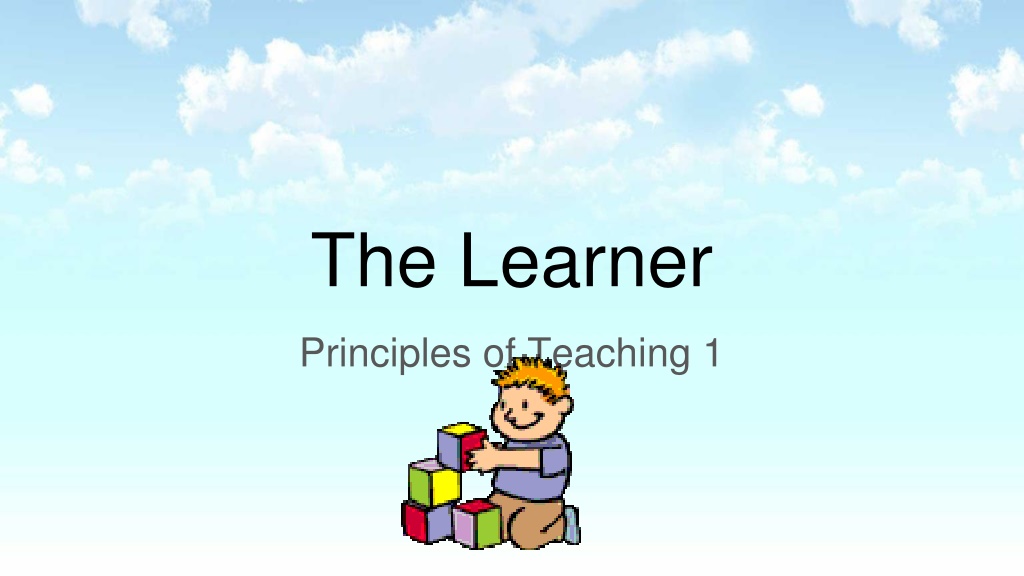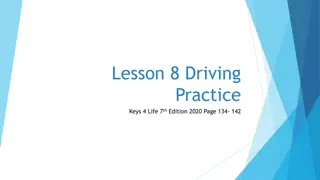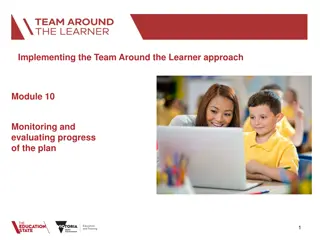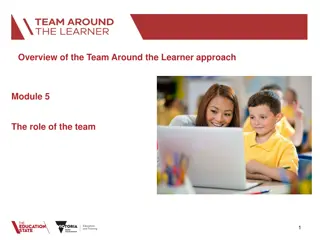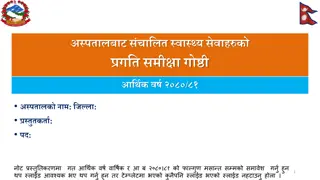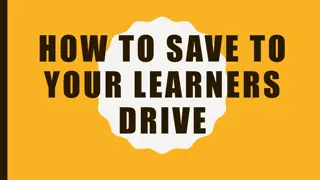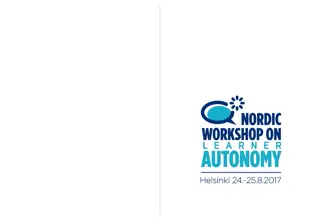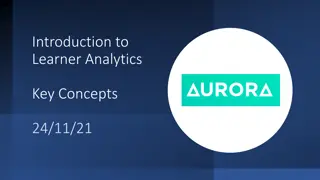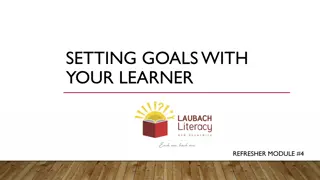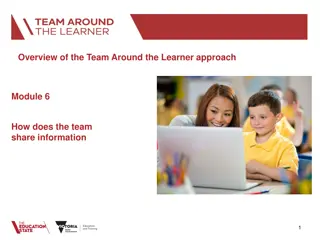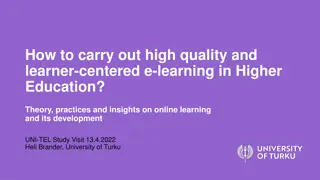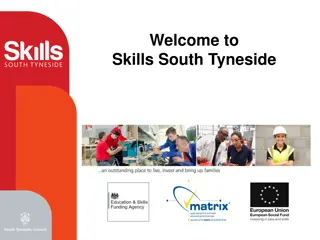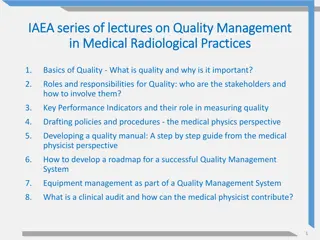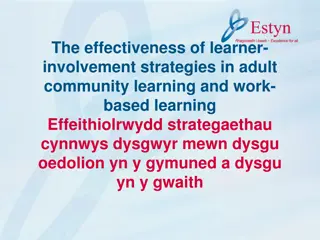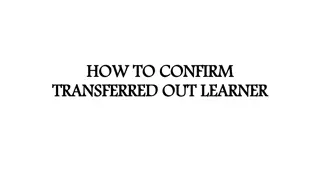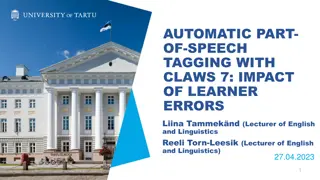Understanding the Learner: Key Elements and Fundamental Equipment
In the teaching and learning process, the teacher, learner, and conducive environment play vital roles. The learner is seen as an embodied spirit with cognitive faculties, instincts, and imagination being fundamental equipment. Nurturing both the physical body and spiritual nature is crucial for effective learning experiences.
Download Presentation

Please find below an Image/Link to download the presentation.
The content on the website is provided AS IS for your information and personal use only. It may not be sold, licensed, or shared on other websites without obtaining consent from the author. Download presentation by click this link. If you encounter any issues during the download, it is possible that the publisher has removed the file from their server.
E N D
Presentation Transcript
The Learner Principles of Teaching 1
Principal elements that make teaching and learning possible - Teacher - Learner - Conducive learning
Teacher = serves as prime mover of the educational process.
Learner Key participant in the learning process.
Conducive learning environment Provides essential features and ingredients that could make a headway in guiding the teaching-learning process and methodologies needed for a smooth linkage of the three.
Learner as an embodied spirit Learner is an embodied spirit. He or she is a union of a sentient body and a rational soul. His or her body experiences sensation and feels pleasure and pain. A learner who is hungry, physically exhausted and sleepy cannot be at his/her best in the classroom. A learner has also a spiritual nature. He /she must nourish not only his body, but also his spirit.
Fundamental Equipment of the learner Cognitive Faculties 1. Five Senses - part of the learner s sentient body. For efficient and effective learning, it is important that his /her senses function normally.
2. instincts Learner is also equipped with instincts. Instinct comes from the Latin word instinctus which means impulse. This means that the learner has a natural or inherent capacity or tendency to respond to environmental stimuli such as danger signs for survival or self- preservation. This is manifested in his /her immediate tendency to flee in case of dancer or to fight when attacked or to rationalize to defend himself/herself when his /her ego is hurt.
3. imagination It is the ability to form a mental image of something that is not perceived through the senses. It is the ability of the mind to build mental senses, objects or events that do not exist, are not presented or have happened in the past.
4. Memory Cognitive faculty of retaining and recall past experience.
5. intellect By his / her intellect, the learner can engage in cognitive processes such as forming ideas or concepts, reasoning out and making judgment. The use of syllogism in logic illustrates the 3 cognitive process of conception or concept formation, reasoning and judging. Reasoning includes analyzing. Judging is evaluating.
Appetitive Faculties 1. His /her feelings and emotions- emotion is the on/off switch for learning. Positive feelings and emotions make the teaching- learning process an exciting and a joyful , fruitful affair. Negative feelings and emotions- make the same process a burden.
2. Rational will The learner s will serves as a guiding force and the main integrating force in his /her character. It makes the learner free to choose or not to choose to do the good as presented by his/her intellect.
Factors that contribute to the differences among learners. All learners are equipped with the cognitive and appetitive faculties. They differ however in the degree to which they are utilized and expressed on account of the learners abilities, aptitudes, interests, values and attitudes and home background.
Ability The learners native ability dictates the prospects of success in any purposeful activity. Learner s proficiency in memorization, imagination concept formation, reasoning, judging and other cognitive skills are contingent on their endowed potential to learn. Ability - determines the learners capacity to understand and assimilate information for their use and application.
Aptitude Refers to the learners innate talent or gift. It indicates a natural capacity to learn certain skills. The powers of memory, imagination, concept formation , reasoning and judgment on matters related to the arts function best for those who exhibit special inclination for the arts such as painting and designing crafts. Likewise , the same cognitive powers are at their peak for mathematics for those with aptitude in math.
interests Learners interest in learning makes learning no longer a task but a pleasure. The learners cognitive faculties of sensorial experience, memory, imagination, concept formation, reasoning and judgment are at their height when learners interests are also at its peak. Learners have varied interests.
Family and cultural background. Students who come from different socioeconomic background manifest a wide range of behavior due to differences in upbringing practices. Beneficial relationships of learners with their mentors and with one another affirm the kind of bond they enjoy at home.
Attitudes and values. Positive attitude- enhance the maximum and optimum use of the learner s cognitive and affective faculties for learning. Negative attitude towards learning robs them of many opportunities for learning. Learners with a positive attitude will demonstrate the value of persistence in their studies. They develop the attitude of trying alternative procedures until they obtain satisfactory results. When we have positive learning beliefs and attitudes, we can relax, remember, focus and absorb information as we learn.
